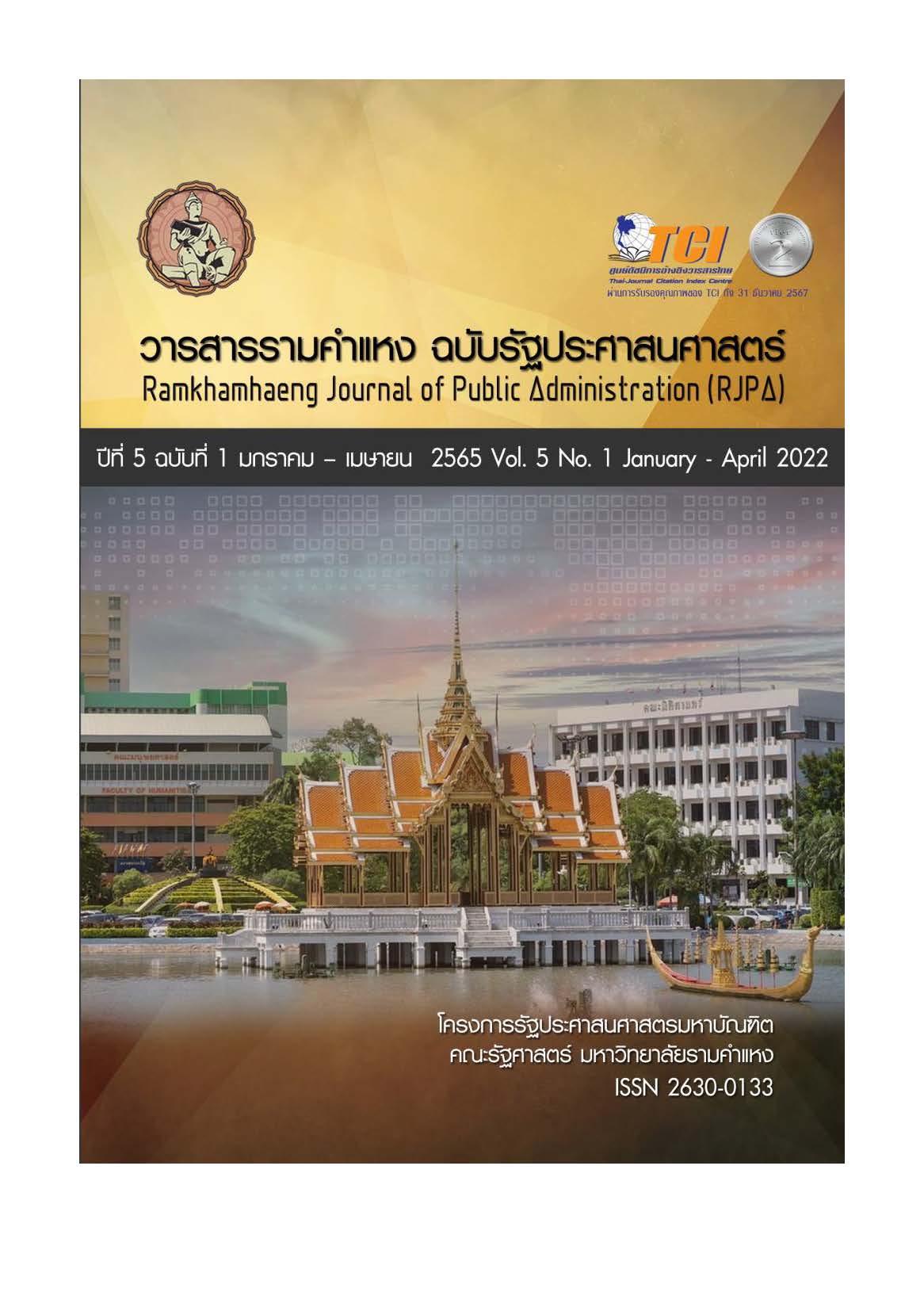International Relations Theory in 21st Century
Keywords:
theory, international relations, 21st centuryAbstract
The purpose of this research in to study (1) The development of international relations theory (2) International Relations Theory in 21st century and (3) The benefits and constraint of international relations theory. The study of the topic reveals that the study of international relations theory can be traced to E.H. Carr’s “The Twenty Years’ Crisis”, which was published in 1939 and to Hans J. Morgenthau’s “Politics Among Nations: The Struggle for Power and Peace” published in 1948 which presented the concept of realism or international politics in the struggle for power. The key theories that have shaped the world politics and globalization are Realism, Liberalism, Constructivism and Marxism. Apart from these theories, a further 67 theories of International Relations have emerged as a sub-set to explain the key theories such as neo-Marxism feminism, green theory. The benefit of international relations Theory is to conceptualize, explain and assess phenomenon. And the constraint of this theory is the power of explaining the situation or circumstances.
References
กีรติ บุญเจือ. (2533). ทฤษฎีแห่งความรู้. ค้นเมื่อ 10 มกราคม 2562 จาก http:www.bananjomyut.com
ชัยวัฒน์ อัตพัฒน์. (2555). ญาณวิทยา (ทฤษฎีความรู้). กรุงเทพฯ: สาละพิมพการ.
ฐิติวุฒิ บุญยวงค์วิวัชร. (2551). ลักษณะทั่วไปของการศึกษาความสัมพันธ์ระหว่างประเทศ. ค้นเมื่อ 1 กรกฎาคม 2561 จาก http.//www01blog-post-1051. Html?m=1
นรุตม์ เจริญศรี. (2556). ทฤษฎีความสัมพันธ์ระหว่างประเทศ. เชียงใหม่: บีบุ๊ก ก๊อปปี้ปรินซ์.
ปานทิพย์ ศุภนคร. (2538). ปรัชญาเบื้องต้น. กรุงเทพฯ: สำนักพิมพ์มหาวิทยาลัยรามคำแหง.
Affarsi, H. (2017). The major theories of international relations. Retrieved July 12, 2018, from https://www.profolus.com/topics/major-theories-of-international-relations/
Aron, R. (1966). Peace and War: A Theory of International Relations. New York: Doubleday & Company.
Burcill, S. (2005).Theories of International Relations. New York: Palgrave Macmillan.
Carr, E. H. (1940). The Twenty Years’ Crisis United Kingdom. New York: Palgrave Macmillan.
Cristol, J. (2017). International Relations Theory. Retrieved April 11, 2018, from http://www.oxfordbibliographies.Com/view/document /obo- 9780199743292/ obo-9780199743292-0039.xml
Deutsch, K. (1978). The Analysis of international Relations. New Jersey: Prentice-Hall.
Dougherty, J. & Pfaltzgraff, R.L. (1972). Contending theories of International Relations: A Comprehensive Survey. New York: Free Press.
Ebenstein, W. (1960). Great political thinkers Plato to the present. New York: Halt, Rinehart and Winston.
Griffiths, M. (2007). International Relations Theory for the Twenty-First Century. London: Routledge.
Mcglinchey, S. (ed) . (2017). International Relations Theory. Retrieved June 13, 2018 from http://www-e-ir.info/wp-content/uploads/2017/11/international-Relations-Theory-E-IR.pdf.
Milner, H. (1997). Institutions and Information: Domestic Politics and International Relations. New Jersey: Princeton University Press.
Morgan, P. (1981). Theories and Approaches to International Politics: What are we to think?. New Jersey: Transaction Books.
Morgenthau, H. J. (2011). Politics Among Nations: The struggle for Power and Peace. Boston: McGraw-Hill.
Monteiro, N. (2014). Theory of Unipolar Politics. New York: Cambridge University Press.
Oprisko, R. (2013). IR Theory’s 21st Century Experiential Evolution. Retrieved May 16, 2018 from https://www.e-ir.info/2013/05/25/the-fall-of-the-state-and-the-rise-of-the-individuals-ir-theorys-21st-century-experiential-evolution/
Reiter, D. (2015). “Should We leave behind the Subfield of international Relations?”. Annual Review of Political Science 18(1), 81-499.
Sen, G. (2014). International Relations and International Security in the 21st Century: The World in Transition. New Delhi: KW Publishers Pvt Ltd.
Skidmore, W. (1979). Theoretical Thinking in Sociology. Cambridge: Cambridge University Press.
Snyder, J. (2004). “One World, Rival Theories”. Foreign Policy 145, 52-62.
Wendt, A. (2000). Social Theory of International Politics. Cambridge: Cambridge University Press.
Downloads
Published
How to Cite
License
Copyright (c) 2025 วราภรณ์ จุลปานนท์

This work is licensed under a Creative Commons Attribution-NonCommercial-NoDerivatives 4.0 International License.



